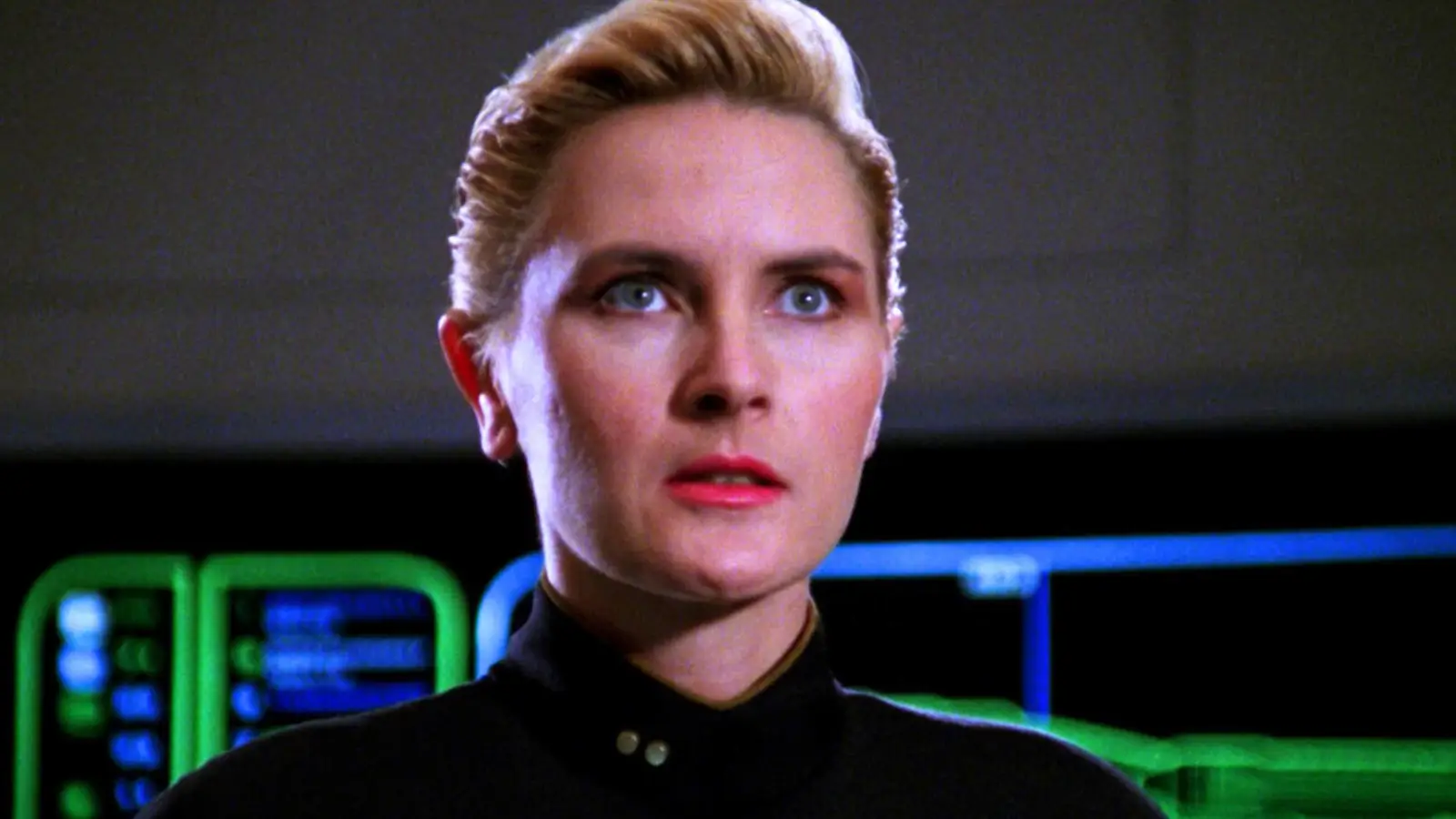
Star Trek is legendary for many reasons, but one key ingredient in the franchise’s decades-spanning success is just how strong so many of its stories are. From The Original Series through to modern hits like Strange New Worlds, individual Star Trek episodes have consistently delivered the very best of sci-fi storytelling.
There’s an obvious reason why so many of these episodes stand out – their endings. Star Trek rarely disappoints when it comes to a satisfying conclusion. Whether it’s emotional closure, a deep philosophical musing, or a shocking snatch of victory from the jaws of defeat, Trek’s boldest episodes tend to save some of their most powerful moments for their final scenes.
This makes the best Star Trek episode endings tough to narrow down, with scores of memorable examples spread across all 12 shows in the franchise. However, the most exceptional conclusions stand out for their own reasons and perfectly encapsulate the heights of Trek’s nearly flawless storytelling tradition.
Cause And Effect (Star Trek: TNG Season 5, Episode 18)
The Crew’s Relief Is As Powerful As The Audience’s
Few Star Trek: The Next Generation episodes are as relentlessly tense as “Cause and Effect.” The story traps Captain Jean-Luc Picard (Patrick Stewart) and the crew of the Enterprise in a time loop that repeatedly ends with the ship colliding with another vessel – one helmed by Frasier star Kelsey Grammer as Captain Bateson, no less – and exploding.
The structure makes the audience feel just as trapped as the characters themselves, and the climax resolves the tension brilliantly. Data (Brent Spiner) sends a subconscious clue to himself across time loops, enabling him to act differently at the critical moment. The Enterprise finally avoids its fatal collision, snapping the cycle after what feels like an eternity of destruction and repetition.
The overwhelming sense of relief at the ending is what makes it perfect. After nearly an hour of frustration, confusion, and inevitable doom, watching the Enterprise break free is an almost cathartic release. It’s a quintessential TNG ending: smart, science-driven, and deeply satisfying.
Space Seed (Star Trek: TOS Season 1, Episode 22)
A Villain’s Exile Sets Up Star Trek’s Most Iconic Movie
“Space Seed” introduces one of The Original Series’ most enduring villains: Khan Noonien Singh (Ricardo Montalbán). The genetically engineered superhuman nearly seizes control of the Enterprise before Captain James T. Kirk (William Shatner) manages to stop him. But instead of simple imprisonment, the resolution sets Khan on a different course entirely.
The episode closes with Khan and his followers exiled to Ceti Alpha V, where they are left to build their own society. It’s an ominous yet oddly respectful ending, with Kirk acknowledging Khan’s potential for greatness even as he condemns him to a harsh future. The episode even frames the exile as an almost Shakespearean twist of fate.
This conclusion is memorable because it’s not truly the end. “Space Seed” provides a launching point for Star Trek II: The Wrath of Khan, arguably the Star Trek franchise’s greatest movie. By ending on exile instead of death, the story planted seeds that paid off spectacularly years later.
Year Of Hell Pt. 2 (Star Trek: Voyager Season 4, Episode 9)
Voyager’s Sacrifice Leads To A Timeline Reset With Emotional Weight
Across “Year of Hell,” the USS Voyager and its crew endure a harrowing campaign against time-manipulating villain Annorax (Kurtwood Smith). For an entire year, Captain Kathryn Janeway (Kate Mulgrew) fights to keep her battered ship alive, only for the odds to grow increasingly impossible. By the second part, survival seems unattainable.
The finale delivers a powerful climax. Janeway rams Voyager directly into Annorax’s time ship, destroying both vessels. The action resets the timeline, undoing the crew’s suffering. What elevates the ending beyond spectacle, however, is Annorax’s own resolution: he finally allows the reset to happen, leading to a quietly moving final moment where he reunites with his long-dead wife.
“Year of Hell” could have ended with Voyager’s victory alone, but pairing it with Annorax’s redemption makes the conclusion haunting and emotional. It’s an epic reset button ending, but one with personal resonance that lingers long after the credits roll.
The Visitor (Star Trek: DS9 Season 4, Episode 2)
A Son’s Lifelong Devotion Ends In Heartbreaking Sacrifice
“The Visitor” is one of Deep Space Nine’s most acclaimed episodes, and much of that praise comes from its ending. The story follows Jake Sisko (Tony Todd as an older Jake, with Cirroc Lofton as the younger) across decades as he grows old trying to save his father, Captain Benjamin Sisko (Avery Brooks), who is stuck in a temporal anomaly.
The episode’s emotional climax sees Jake realize he must sacrifice himself. By dying, he severs the connection that keeps his father trapped, restoring Benjamin to the present. Jake’s final act of devotion ensures that his father will live the life Jake himself has missed.
It’s an ending that’s both heartbreaking and profoundly moving. Instead of a grand victory or a traditional resolution, “The Visitor” concludes with the quiet, devastating love of a son for his father. It remains one of the most human and unforgettable conclusions in the history of Star Trek.
Yesterday’s Enterprise (Star Trek: TNG Season 3, Episode 15)
A Doomed Crew Embraces Their Fate For The Greater Good
“Yesterday’s Enterprise” remains a high point of The Next Generation’s exploration of alternate timelines. When the Enterprise-C emerges from a temporal rift, reality shifts into a darker version of the Federation at war. Captain Picard must weigh whether to send the ship back, knowing it will mean certain death for its crew.
The ending lands with incredible power. The Enterprise-C chooses to return to its timeline, ensuring history is restored but sealing their own fate. The closing moments balance quiet acceptance with the grim finality of battle, as Picard and his crew salute their counterparts’ bravery before reality shifts back to normal.
This conclusion of “Yesterday’s Enterprise” works because it’s both tragic and heroic. The choice to sacrifice an entire crew for the greater good captures the essence of Trek’s moral dilemmas while delivering one of the most stirring and noble sacrifices in the franchise’s long history.
Endgame Pt. 2 (Star Trek: Voyager Season 7, Episode 26)
Voyager Finally Makes It Home In A Triumphant Finale
As a series finale, “Endgame” carried the burden of giving Voyager closure after seven seasons. The stakes are enormous: Admiral Janeway travels back in time to alter Voyager’s fate, helping her younger self lead the crew safely home. The final act pulls together action, sacrifice, and emotional payoff.
The climax sees Voyager narrowly escape destruction inside a Borg transwarp hub, ultimately emerging in Earth’s orbit. The moment is both triumphant and emotional, especially as the crew processes the realization that their journey has finally ended. Their survival, earned after countless sacrifices, resonates all the more for the risks they took.
The conclusion to “Endgame” is satisfying on multiple levels: it resolves the episode’s time-travel plot, caps off Voyager’s journey, and delivers the emotional closure fans had long awaited. Few Trek finales strike this balance so effectively, making it one of the franchise’s strongest endings.
The Inner Light (Star Trek: TNG Season 5, Episode 25)
Picard’s Quiet Moment With A Flute Lingers Forever
“The Inner Light” is one of The Next Generation’s most celebrated episodes, largely because of its deeply poignant ending. A probe causes Captain Picard to live an entire lifetime as an alien named Kamin, experiencing decades of love, loss, and family in the span of minutes.
The final scenes are understated but devastating. Awakening on the Enterprise, Picard returns to his reality, but the life he lived remains with him. When he is handed Kamin’s flute, he plays a simple melody that encapsulates the memories of a family and a world long gone.
This ending’s brilliance lies in its restraint. Rather than offering a grand revelation, it leaves viewers with a quiet, reflective moment that underscores the lasting impact of experience. The haunting image of Picard alone with his flute is one of the most powerful in all of Star Trek.
In The Pale Moonlight (Star Trek: DS9 Season 6, Episode 19)
Sisko’s Chilling Monologue Shatters The Federation’s Idealism
“In the Pale Moonlight” strips Deep Space Nine to its moral core. The episode follows Captain Sisko as he conspires to bring the Romulans into the Dominion War through lies, manipulation, and even complicity in murder. By the finale, the Federation has its ally – but at a terrible ethical cost.
The ending unfolds as Sisko records a log entry, confessing everything. His words are raw, philosophical, and deeply unsettling as he justifies the compromises he has made. Then, in the chilling final moment, he deletes the log, erasing his confession from history.
This conclusion is unforgettable because it forces viewers to confront the moral cracks in Starfleet’s shining image. It’s an ending without redemption, one that reveals the brutal pragmatism beneath the Federation’s ideals. Few Star Trek episodes end on such a hauntingly ambiguous note.
The City On The Edge Of Forever (Star Trek: TOS Season 1, Episode 28)
Kirk’s Tragic Choice Defines Star Trek’s Emotional Depth
Widely hailed as the best episode of The Original Series, “The City on the Edge of Forever” is unforgettable largely because of its ending. When Captain Kirk falls in love with Edith Keeler (Joan Collins), only to learn that her death is necessary to preserve history, the stage is set for one of Star Trek’s darkest conclusions.
The finale is devastating. Kirk stops Dr. Leonard McCoy (DeForest Kelley) from saving Edith, allowing her to die in a car accident. The timeline is restored, but Kirk is left shattered by the loss of a woman he loved deeply. The episode closes with him silently processing his grief.
This ending stands out because of its uncompromising tragedy. Rather than offering a neat resolution, it underscores the painful truth that sometimes sacrifice is unavoidable. It remains one of Star Trek’s most emotionally powerful conclusions, highlighting the show’s willingness to embrace darkness.
All Good Things… Pt. 2 (Star Trek: TNG Season 7, Episode 26)
The Final Poker Game Captures The Soul Of The Next Generation
“All Good Things…” had the monumental task of closing The Next Generation after seven seasons, and it delivered one of the best series finales in television history. Across shifting timelines, Picard battles to prove humanity’s worth in a test from Q (John de Lancie), bringing together past, present, and future.
The ending is a masterstroke of emotional resonance. After saving the timeline, Picard joins his senior staff for a poker game—something he had never done before. As the camera pulls back from the table, the sense of unity, closure, and newfound connection is palpable.



